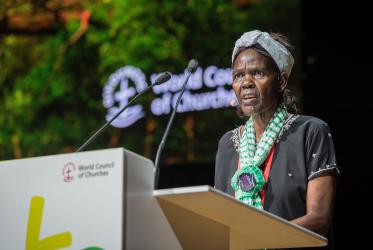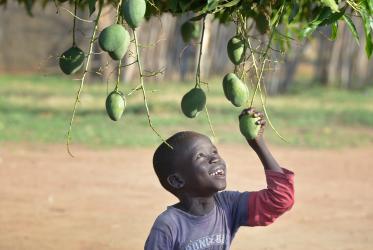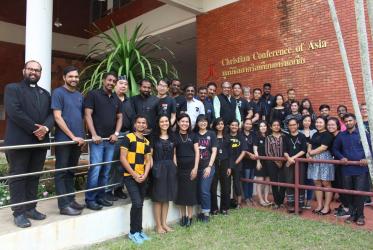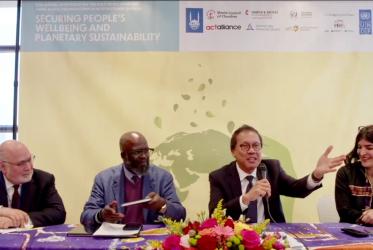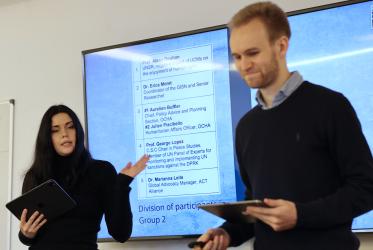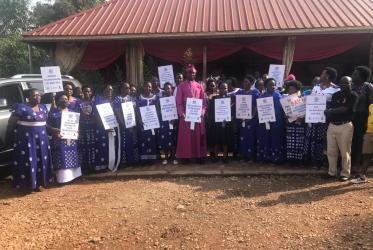Displaying 21 - 40 of 597
Peace Pilgrim Agnes Abuom dies at 73
01 June 2023
WCC Eco-School for Europe and North America region
11 - 18 November 2023
Orthodox Academy of Crete, Greece
HIV and AIDS Civil Society Networks and the Faith Sector
Lessons Learnt from Strategic Engagement in India, Dominican Republic, Indonesia, and Jamaica
31 January 2023
On World AIDS today, tackling inequalities is a matter of justice
02 December 2022
